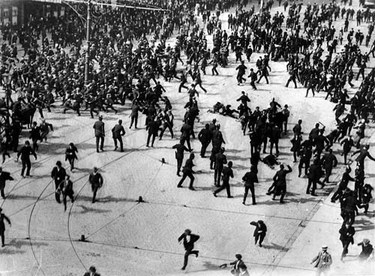September 1913

September 1913 was a turbulent time in the history of Dublin. It was a time when Yeats found the voice of his righteous anger to express his frustration of the manner in which Irish Society was being exploited by the merchant classes.
Spoken Word
|
What need you, being come to sense,
But fumble in a greasy till And add the halfpence to the pence And prayer to shivering prayer, until You have dried the marrow from the bone; For men were born to pray and save: Romantic Ireland’s dead and gone, It’s with O’Leary in the grave. Yet they were of a different kind, The names that stilled your childish play, They have gone about the world like wind, But little time had they to pray For whom the hangman’s rope was spun, And what, God help us, could they save? Romantic Ireland’s dead and gone, It’s with O’Leary in the grave. Was it for this the wild geese spread The grey wing upon every tide; For this that all that blood was shed, For this Edward Fitzgerald died, And Robert Emmet and Wolfe Tone, All that delirium of the brave? Romantic Ireland’s dead and gone, It’s with O’Leary in the grave. Yet could we turn the years again, And call those exiles as they were In all their loneliness and pain, You’d cry, ‘Some woman’s yellow hair Has maddened every mother’s son’: They weighed so lightly what they gave. But let them be, they’re dead and gone, They’re with O’Leary in the grave. |